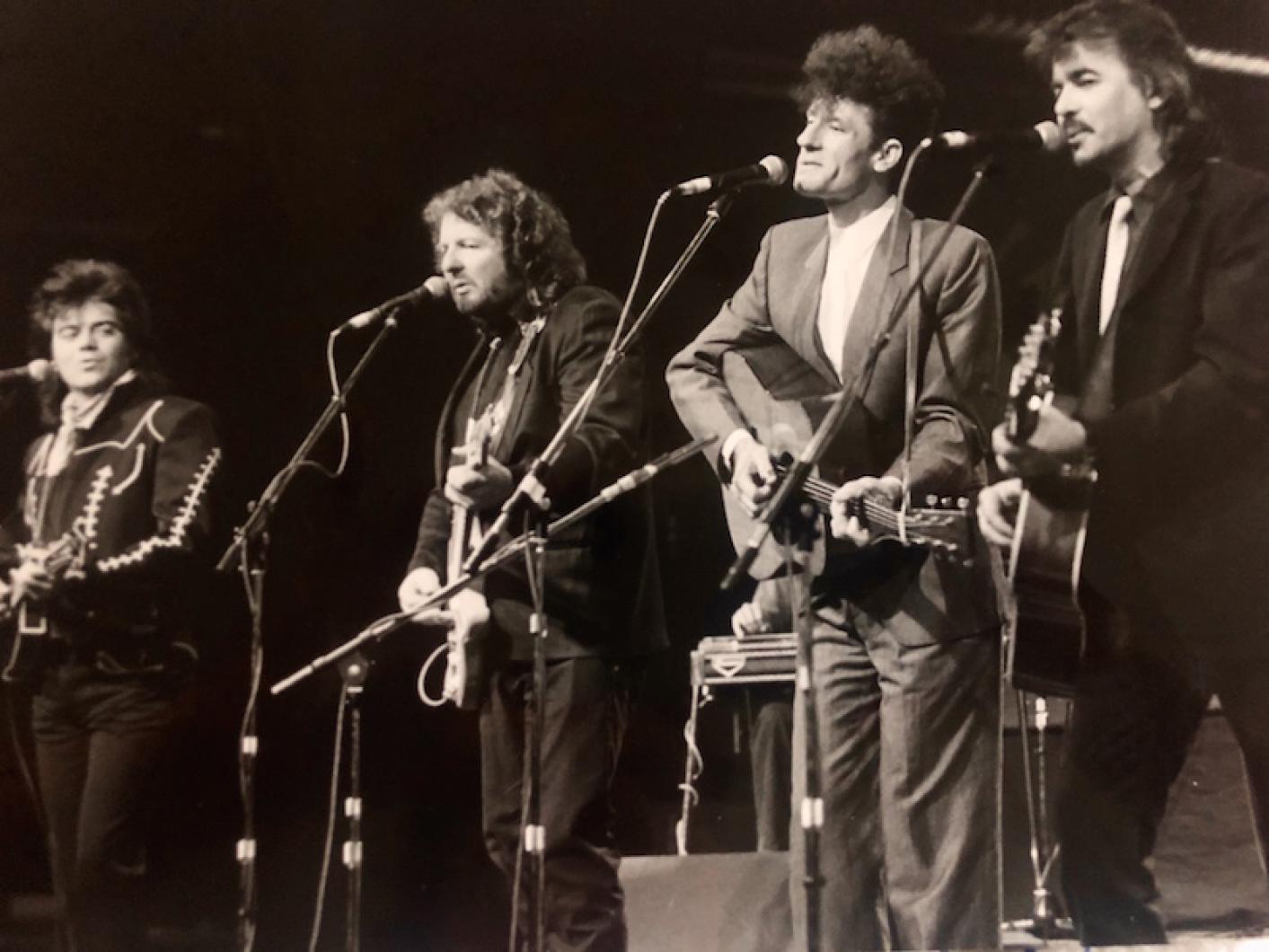He was perched at the carved wood and marble bar of the Peabody Hotel in Memphis, eyes glittering like black diamonds, dark hair turning up at the collar and a cigarette held parallel to the bar. It wasn’t quite cocktail hour, but John Prine loved the high southern luxury of the lobby.
Laughing about something, he turned as I rushed up, squeaking, “What are you doing here?”
“Well, Holly, waiting for the ducks to march, then we’re getting back to the card game,” he said.
“Card game?”
“Yeah, we took over the bridal suite for a few days, having a little poker party.”
“In the bridal suite of the Peabody Hotel?”
“Absolutely. Can you think of a better place?”
That was so John Prine, a little off-kilter, a little unexpected, but digging into traditions, figuring out how to create a good time wherever he landed. For all the sad songs, Prine relished life with a fine eye for the human condition.
He sprang almost fully formed, working a postal route in Chicago where he wrote many of the songs that became his first album — Sam Stone, Hello In There, Paradise, Angel from Montgomery, Blow Up Your TV.
Those songs — and so many that came after — might as well be campfire folk songs passed down for generations. By the time I met Prine he had left the major labels and established his own label, Oh Boy, so he could target getting the music to the people who wanted it, with no real pressure to chase trends and fads. Like a true blue-collar Midwestern kid, the work didn’t scare him nearly as much as the idea of other people being in charge of his music did.
He hated interviews but we found common ground. The night we met, he stepped over the monitor during his first song at West Palm Beach’s Carefree Theater and scared me to death with a “Hello Holly!” But after the show, after the meet-and-greet, we sat and talked and laughed and marveled — about running a label yourself, about his friend Steve Goodman, whom I’d never met, and the Chicago folk scene’s Tribute To Steve Goodman, which would win the first Contemporary Folk Grammy.
Prine, ever the Huckleberry, wasn’t boasting. He was pitching me to write about his friend, trying to make sure that legacy remained. That was John, too, always taking care of others, making sure the light shined and people felt good.
Give back. Reach out. Look people in the eye. Simple stuff, but he lived it. Proud that his song Paradise was part of the Peabody Coal Company’s law suit, he did benefits for veterans, the homeless, Thistle Farms in Nashville, which helps get prostitutes off the streets and into job skills.
Three decades as his friend felt like I was always winning a random lottery Christmas. Doorbell rings, and there’s John with the long sleek Cadillac idling in the driveway, wanting to go for a ride.
Look up from a book at a local taco place, with tray at eye level, it will be John asking, “Can I sit with you?” like it’s the high school cafeteria.
Turn around in line for popcorn at the indie theatre, John in that black topcoat, ready for chitchat. Pull up to the bar at the Bluebird, Prine’s sitting there listening to the local writers.
Duck into Barney’s and there’s John, picking out shoes for his Irish bride Fiona Whelan, who took over as his manager when Al Bunetta died.
Funny thing about The Tree of Forgiveness, nominated for all those Grammys, suddenly he was John Prine in capital letters. Part of it was all the young artists who’d embraced him — Jason Isbell, Kacey Musgraves, Sturgill Simpson, Margot Price, Jim James, Brandi Carlile. But it was really just classic Prine — smart songs with interesting metaphors and unexpected twists, played honestly and without a lot of layers.
Mostly, though, the songs told the truth in a way you couldn’t dodge. So much went into what appeared to be simple lines — two bouts of cancer, which he fought and won in large part because of how much love of family sustained him, plus the ability to make music as he intended when he walked away from the record business to make his own label, and a world that always surprised, amazed and often delighted him.
If he’s right about the Tree of Forgiveness, the bar in When I Get To Heaven, the next life is one heckuva time. All your friends who have gone before you, your Momma, Daddy, aunts and uncles, a bottomless Handsome Johnny (Smirnoff red and diet giingerale “to stay handsome”) and a cigarette that’s nine miles long awaits.
As for those of us left here, well, we have the records and the memories we made listening to them. That’s not a bad way to remember what matters along the way.
Holly Gleason is a frequent contibutor to the Vineyard Gazette. She lives in Nashville, Tenn.




Comments (5)
Comments
Comment policy »